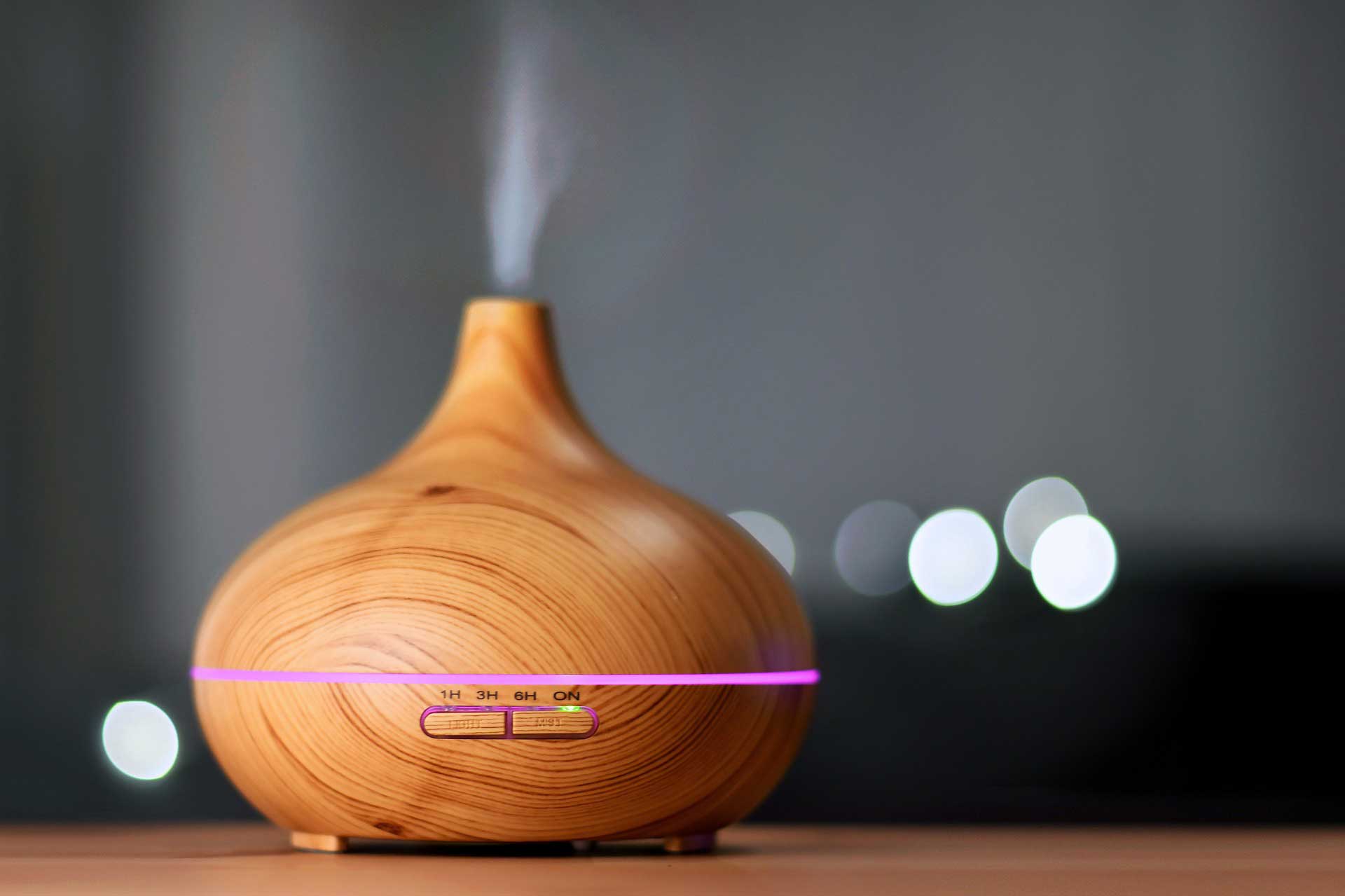Humidity has numerous effects your health, home, and comfort. If there is too much moisture in your room, it can make you feel hotter and muggier. It can also promote mold growth in your home. Meanwhile, if your room is too dry, it can make your throat dry and itchy, as well as cause dryness of skin and eyes.
To prevent these adverse effects, scientists recommend to keep your indoor relative humidity levels between 40% to 60%. Fortunately, there are two different appliances you can use to condition your air: the humidifier and the dehumidifier.
A humidifier is a device that increases the humidity in your room. Meanwhile, a dehumidifier does the complete opposite and takes moisture off from the air to make it drier. This article will help you choose which one you need for your home.
Humidifier vs. Dehumidifier
Humidifiers add moisture into the air, thus increasing the relative humidity in your room. To use a humidifier, you have to put some water in the tank which will then be turned into vapor. Humidifiers either use impellers, ultrasonic devices, or boilers to turn water into vapor.
For added pizzazz, you can put a few drops of a water-based essential oil that will diffuse a soothing aroma throughout your room, which you may find therapeutic.
Meanwhile, a dehumidifier takes moisture off the air, thus reducing the relative humidity in your room. It works either by passing air through a desiccant (water absorber) or the heat pump method.
The heat pump method uses the same working principle as an air conditioner, where the air is passed over an extremely cold evaporator. This process condenses the water vapors in the air which will later drip down into a collection tank.
Do you need a dehumidifier or a humidifier?
Both a humidifier and a dehumidifier are useful in different situations. Here is how to know when you need to use them.
How to know the relative humidity in your room
As stated earlier, the recommend level of relative humidity (RH) level indoors is between 40% to 60%. If you want to know the RH level in your room, you should invest in a hygrometer to get an accurate reading of how humid your room is.
Generally, when the RH falls below 40%, it means that the air is dry and that you need to activate your humidifier to introduce moisture into the air. However, when the RH is above 60%, it means that the air is too humid and that you need to activate your dehumidifier to alleviate the situation.
How humidity affects your health
Too much or too little humidity can affect your body in many ways. First of, too much humidity in indoor air can increase the survival rates and transmission rates of viruses and bacteria. Worse, high humidity can cause dust mite populations to grow. When these bugs and bacteria die off, they can release endotoxins, which can cause coughing and exacerbate asthma and allergies.
You won’t fare much better if the indoor air is too dry. Dry air will hasten the evaporation of the thin layer of fluid in your airways, which can make the swell and cause asthma. If you have a dry cough, turn on your humidifier to get more moisture in your airways, thus helping alleviate the effects of coughing and asthma.
How humidity affects your home
Apart from bacteria, another thing that grows faster in highly humid environments are fungi. Molds, mildew and mushrooms can speed up the decay of wood furniture when left untreated. Molds can also for unsightly black spots in your ceiling, and worse, can release spores that might cause asthma and allergic reactions.
Moreover, molds can give off a pungent odor especially if the room is not well ventilated. When you see molds and mildew building up in your home, consider getting a dehumidifier to control their growth.
On the flip side, materials like plaster, leather, and wood can get damaged when the air is too dry. Usually, this damage manifests itself as cracks on the material. You should use a humidifier to protect leather goods like shoes and bags from damage. It will also help your furniture and flooring from deteriorating.
How humidity affects your comfort
As they say: it’s not the heat, it’s the humidity. Too much humidity prevents your sweat from evaporating, thus making you feel all sticky and muggy. Water vapor traps heat as well, which means that you will feel hotter than it actually is. Get a dehumidifier if you want to avoid this mess.
Meanwhile, dry air can also cause discomfort by drying out your eyes, lips, and skin. It can even cause your nose to bleed. Ge a humidifier to prevent these from happening.
Conclusion
As you’ve seen, indoor humidity will have a big impact in your quality of life. You should get on top of controlling the RH in your home to keep you comfortable and healthy. And now that you know the difference between a humidifier vs. a dehumidifier, you can now decide which appliance is right for your needs.
Sources
- https://www.ncbi.nlm.nih.gov/pmc/articles/PMC1474709/
- https://www.lung.org/clean-air/at-home/indoor-air-pollutants/bacteria-and-viruses
- https://kidshealth.org/en/teens/nosebleeds.html
Miguel Mores worked for 5 years as a member of the product management team for a home appliance company in the Philippines. He started 101appliance to answer the most common customer questions that he has encountered during his time in the industry. He now works in the digital marketing field and manages a small online bookstore on the side.
